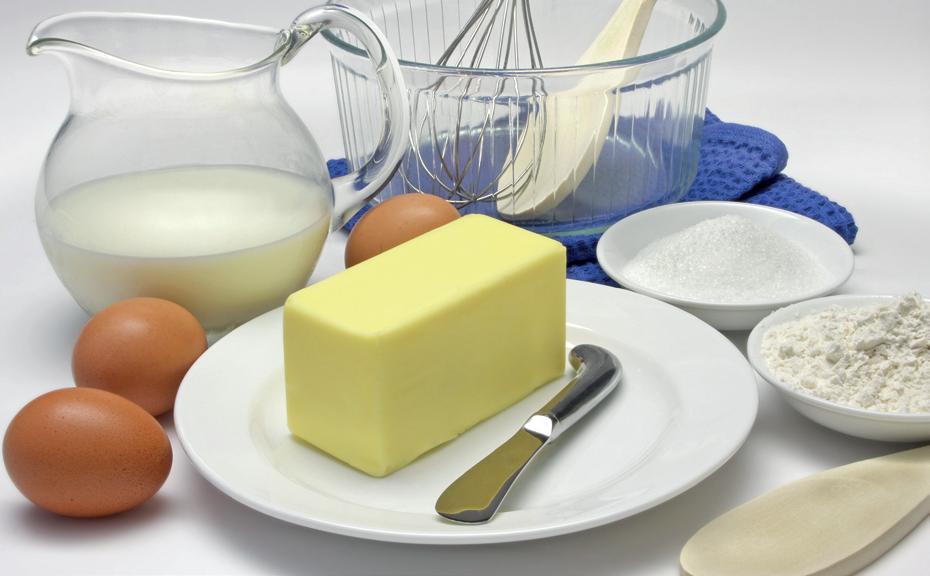
10 minute read
Quantifiers
from Grammar Plus B2
Quantifiers are words that we use to determine the amount of something or a number of things expressed by a noun. Some quantifiers can only go with countable nouns (books, children, apples), whereas other quantifiers are only used with uncountable nouns (milk, strength, money). There is also a third group which can be used with both types of noun.
Scarcity or a small quantity
An unknown quantity
A large quantity
• no / not any + plural countable and uncountable • none of + plural countable and uncountable ( = not any) • hardly any + plural countable and uncountable ( = almost no / none) • very few / just a few + plural countable (= hardly any) • few + plural countable (= not many) • too few + plural countable • very little / just a little + uncountable (hardly any) • little + uncountable (= not much) • just a bit (of) + uncountable (more colloquial) • too little + countable
I have no free time this week. OR: I don’t have any free time this week. None of my friends is coming to Brussels with me. (= no friends) There are very few things I care about. OR: there are just a few things I care about. Few people can speak Gaelic. (OR: not many people can speak Gaelic) There’s just a little time left. (OR: There is hardly any time left) I’ve got too little patience. (OR: I haven’t got enough patience) We need just a bit of luck.
• some (in affirmative sentences and with offers and requests) / any (in questions) + plural countable and uncountable • a few + plural countable • a number of / several + plural countable • a little + uncountable • enough + plural countable and uncountable (a sufficient quantity)
We need some eggs and some flour. OR: We need a few eggs and a little flour) There are a number of reasons for this. OR: There are several reasons for this. Put a little salt in the soup. OR: Put some salt in the soup. You don’t eat enough vegetables. / I don’t want to buy more coffee: I have enough.
• a lot of / lots of / plenty of / loads of (colloquial) + plural countable and uncountable • many + plural countable (mostly in negative and interrogative sentences) • too many + plural countable (= more than many) • most + plural countable and uncountable (= the majority of) • most of is used when it is followed by a pronoun, possessive, demonstrative, etc • a great deal of + uncountable (= a lot of) • much + uncountable (only in negative and interrogative sentences) • too much + uncountable (= more than much)
Now that I’m retired I have plenty of free time. Most people like chocolate. / Most of my relatives live in Taiwan. You need a great deal of patience to be a teacher. I don’t drink much water, because I’m never thirsty. (OR: I drink little water...)
OTHER EXPRESSIONS OF QUANTITY
• When we talk about two things we use both (of), either (of), neither (of). The preposition of is used only when the noun is preceded by THE, demonstratives and possessives: both (of) (= the two of them) ➝ The purple one is lovely but I quite like both colours. neither (of) (not any of two) ➝ Neither of my twin sisters is blonde. either (of) (=one or the other) ➝ Would you like pizza or lasagna? Either. • Either can also be used in negative sentences to mean neither:
I saw both these films but I didn’t like either (= I liked neither)
When we want to express the totality of something we use all, every + compounds with every, each and whole, but there are differences in the usage of these quantifiers. • All (of) (+ plural countable or uncountable) is used as an adjective or as a pronoun as follows: the totality of or as ➝ All (of) my friends love wind-surfing. All of them hate football. everything / the only thing that ➝ All I want is food. I’m starving! (in this case it must be followed by a sentence specifying it, not alone: you say: ‘Is everything all right?’ Is all all right?) • Every (+ singular countable) can be used to mean the same as all + plural. Compare these examples:
I’ve downloaded every track on this website OR: I’ve downloaded all the tracks on this website. • Everything is a pronoun referring to things, everybody and everyone refer to people:
Everybody helped to make the costumes for the show, so everything was ready by 7 pm. • Each (+ singular countable) can mostly be substituted by every, but it stresses every single thing or person in a group rather than the total amount as a whole. However when we talk about a small quantity, ‘every’ isn’t normally used; you can only say ‘each of’, not ‘every of’ (but you can say ‘every one of’ if the number is bigger) Each time I see this film I cry. OR: Every time I see this film I cry. (‘All the times’ is possible, but more colloquial) I know each person in this room personally. (a limited number of people)
Each of my siblings has their own room. • Whole (+ singular countable) is normally preceded by an article or a possessive and it often means the same as ‘all + singular countable’. We spent the whole day at the shopping centre. OR: We spent all day at the shopping centre.
Underline the correct quantifier in each sentence. 1 Would you like some / any apple juice? 2 We don’t have much / many homework to do. 3 There are usually lots of / a few books in a library. 4 I have no / none relatives living in my town. 5 Nobody with a bit of / little common sense would swim in a lake when there’s a thunderstorm.
6
7
8
There isn’t some / enough time to visit the Tate Gallery today. There is hardly any / a little room in the fridge, so put the fruit on the table. There are plenty / several mistakes in this test.
Are these sentences right (3) or wrong (7)? Correct the wrong ones. 1 We do much sport to keep fit. 2 Hardly any of my friends have a full time job. 3 Can I have little water, please? 4 There are many countries I’d like to visit. 5 Do you want any milk in your tea? 6 He doesn’t have much patience to do a sudoku. _______________________________________________________________________________________________________________ _______________________________________________________________________________________________________________
14 First Listen to a student comparing and contrasting two pictures and complete the following description with the quantifiers you hear.
Are these homes like the ones in your country? Which of these two houses would you rather live in? Well, (1) ___ these houses are really beautiful. Actually, I can’t see (2) ___ differences between them: (3) ___ have pointed roofs, a wonderful garden with (4) ___ space and (5) ___ plants and trees around. I suppose (6) ___ them is in an Italian city, because (7) ___ people live in flats in my country and (8) ___ can afford to live in large houses, because we don’t have (9) ___ space in towns. In the country it’s a bit different, though... anyway, I think I would love to live in (10) ___ of these homes, but maybe I slightly prefer the one on the right, because the lawn in front of the house is larger.

Complete these sentences with each, every, all or whole. 1 She had a large diamond on ________ of her earlobes. 2 Not ________ verbs are regular. 3 ________ citizen over 18 has the right to vote. 4 I didn’t do ________ the exercises because I had no time. 5 I spent the ________ weekend doing the laundry. 6 ________ of the paintings in this room has something unusual in it. 7 ________ time we decide to play tennis it rains. 8 She spent her ________ life studying lions.
Look at the picture and the recipe for a cake. Complete the sentences with the missing parts.

Ingredients:
200 gr. butter 300 gr. flour 300 gr sugar 50 strawberries 5 eggs 1 tsp. baking powder 1 tsp. vanilla extract 1 lt. milk
all both enough few little lot much neither none plenty some (x2)
There’s (1) ______________ of butter, but there aren’t (2) ______________ eggs so we have to buy a (3) ______________. We’ve got (4) ______________ flour and (5) ______________ sugar, but we need a (6) ______________ more of (7) ______________ . We also need to buy a (8) ______________ of strawberries because we have (9) ______________. We have milk, but not too (10) ______________ , so we have to buy that as well. We also need vanilla extract and baking powder because we have (11) ______________. Well, I’ll go and get (12) ______________ the necessary ingredients.
First Complete the second sentence so that it has a similar meaning to the first using the word in brackets. You must use between 2 and 5 words. 1 We spent all day at home last Sunday. (the) We spent ________________ at home last Sunday. 2 There is very little sugar in this pie. (any) There’s ________________ in this pie. 3 All my relatives hate peanuts. (likes ) ________________ peanuts. 4 I didn’t have many CDs in 1987. (used) I ________________ CDs in 1987. 5 Both my brothers work abroad. (of) ________________ in my country. 6 I looked for both, but I found neither one. (not) I looked for both, but I ________________ of them. 7 You can choose this seat or this one. (of) You can choose ________________ seats. 8 Emily Dickinson lived there all her life. (whole) Emily Dickinson spent ________________ there.
7 First Choose A, B, C or D to complete the sentences below. 1 Don’t worry, we have ___ petrol in the tank. A much B plenty of C a number of D many 2 There were ___ boys in the room: most were in the garden. A a few B very few C any D no 3 ___ money was stolen from the bank. A loads B several C much D a great deal of 4 ___ my friends live in Australia now. A Most of B None C Neither of D Few 5 You need ___ effort to do this exercise: it’s so easy. A a few B a little C little D a few 6 ___ of my parents likes fruit. A None of B Either C Neither D Both 7 I couldn’t find ___ information on the website. A much B many C no D some 8 Put a drop in ___ eye before sleeping. A every B each C all D both 9 They sent two passwords but ___ works. A either B none C hardly any D neither 10 ___ cloud has a silver lining. A Every B Each C All D most 11 ___ people find this exercise impossible, but I don’t. A Much B Most C Every D Any 12 ___ of these museums has security staff. A Every B The whole C Each D All 13 We go to the same resort ___ year. A all B most of C all of D each 14 ___ time I go out with them I have fun. A Every B All C The whole D All of
Complete the following English proverbs with the quantifiers from the box and match them to the correct explanation of their meaning.
all both every few little much neither none too many whole
1
2
3
4
5 6
7
If the blind lead the blind, ____________ shall fall into the ditch. Politeness costs ____________, but yields ____________. If you run after two hares, you will catch ____________. A friend to ____________ is a friend to ____________. ____________ cooks spoil the broth. When children stand quiet, they have done ____________ harm. Give ____________ man thy ear, but ____________ thy voice. One scabby sheep will mar a ____________ flock.
a
b
c d
e
f
g
Silent children are are usually up to something. When a lot of people work on something they end up doing it badly. Being friends with everybody is impossible. When you can’t decide between two things you’ll lose both. If you can’t do something do not teach someone else or neither will benefit from it. You’d better listen a lot and speak very little. Being polite is free, but it can help you gain a lot. One negative element may spoil all the good ones.






